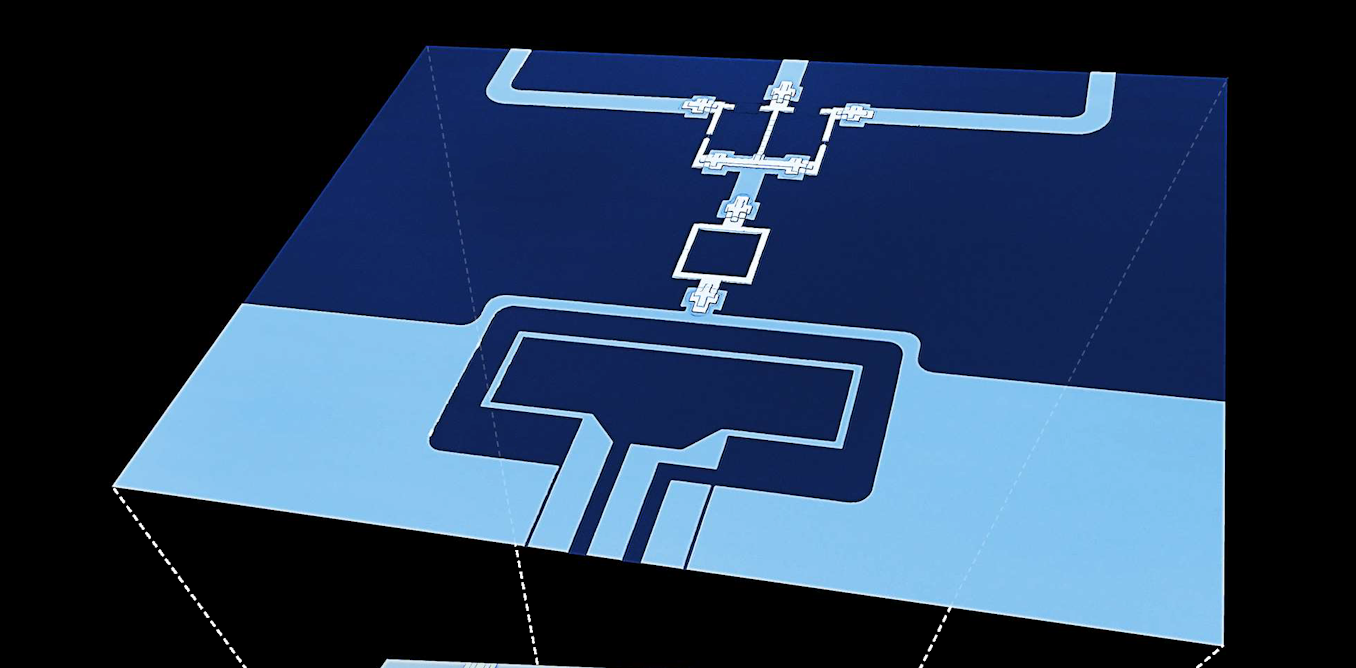Science
Nobel Prize in Physics Recognizes Breakthroughs in Quantum Technology

The Nobel Prize in Physics for 2025 has been awarded to three pioneering scientists whose research into ultracold electronics has significantly advanced the field of quantum technology. This recognition highlights their work in demonstrating that superconducting circuits, even on a large scale, exhibit quantum behavior, paving the way for practical applications in quantum computing and other technologies.
Quantum mechanics, the science that describes the strange behaviors of the smallest particles, has long been seen as a key to solving complex problems across various disciplines, including chemistry and cryptography. The ability to harness quantum systems for computation could allow researchers to tackle issues far beyond the reach of conventional computers.
The laureates, John Martinis, Michel Devoret, and John Clarke, made groundbreaking discoveries in the mid-1980s. Their work revealed that large electrical circuits made from niobium and lead exhibited quantum properties when cooled to just above absolute zero, a state known as superconductivity. In this state, materials can conduct electricity without generating heat, and the behavior of these superconductors can be described using the principles of quantum mechanics.
The team’s findings showed that superconducting circuits have quantized energy levels and can exist in multiple states simultaneously, a phenomenon known as superposition. This is crucial for the development of quantum computers, which rely on quantum bits, or qubits, that can represent and process information in ways that classical bits cannot.
Today, superconducting circuits are used for a variety of applications, including the study of fundamental quantum physics, the simulation of physical systems, and the development of ultra-precise sensors. For instance, the Devoret group recently invented a near-ideal microwave amplifier using superconducting technology, which is vital for communications and scientific instruments.
The advancement of superconducting quantum computers is particularly noteworthy. These systems allow multiple qubits to interact and become entangled, enhancing computational power. Researchers focus on ensuring that qubits remain coherent, controllable, and scalable. The versatility of superconducting circuits enables researchers to design qubits that meet these requirements, making them a leading candidate for practical quantum computing applications.
The impact of the Nobel laureates extends beyond their original discoveries. John Martinis previously led Google’s quantum processor initiative and has since founded his own company. Michel Devoret continues to support quantum research at Google, while John Clarke, now retired, has contributed significantly to the field throughout his career.
As a physicist studying superconducting circuits, I have personally benefited from the foundational work of these laureates. Their influence can be seen in the academic lineage of many researchers in this field, often leading back to John Clarke. The legacy of these scientists serves as a driving force for ongoing innovations in quantum technology.
In conclusion, the 2025 Nobel Prize in Physics acknowledges the profound contributions of Martinis, Devoret, and Clarke in the realm of ultracold electronics. Their ability to demonstrate quantum behavior in large circuits has opened new horizons for quantum computing and other technologies, shaping the future of science and engineering.
-

 World4 months ago
World4 months agoTest Your Knowledge: Take the Herald’s Afternoon Quiz Today
-

 Sports4 months ago
Sports4 months agoPM Faces Backlash from Fans During Netball Trophy Ceremony
-

 Lifestyle4 months ago
Lifestyle4 months agoDunedin Designers Win Top Award at Hokonui Fashion Event
-

 Entertainment5 months ago
Entertainment5 months agoExperience the Excitement of ‘Chief of War’ in Oʻahu
-

 Sports4 months ago
Sports4 months agoLiam Lawson Launches New Era for Racing Bulls with Strong Start
-

 World5 months ago
World5 months agoCoalition Forms to Preserve Māori Wards in Hawke’s Bay
-

 Health4 months ago
Health4 months agoWalking Faster Offers Major Health Benefits for Older Adults
-

 Lifestyle4 months ago
Lifestyle4 months agoDisney Fan Reveals Dress Code Tips for Park Visitors
-

 Politics4 months ago
Politics4 months agoScots Rally with Humor and Music to Protest Trump’s Visit
-

 Top Stories5 months ago
Top Stories5 months agoUK and India Finalize Trade Deal to Boost Economic Ties
-

 Health2 months ago
Health2 months agoRadio Host Jay-Jay Feeney’s Partner Secures Visa to Stay in NZ
-

 World5 months ago
World5 months agoHuntly Begins Water Pipe Flushing to Resolve Brown Water Issue









